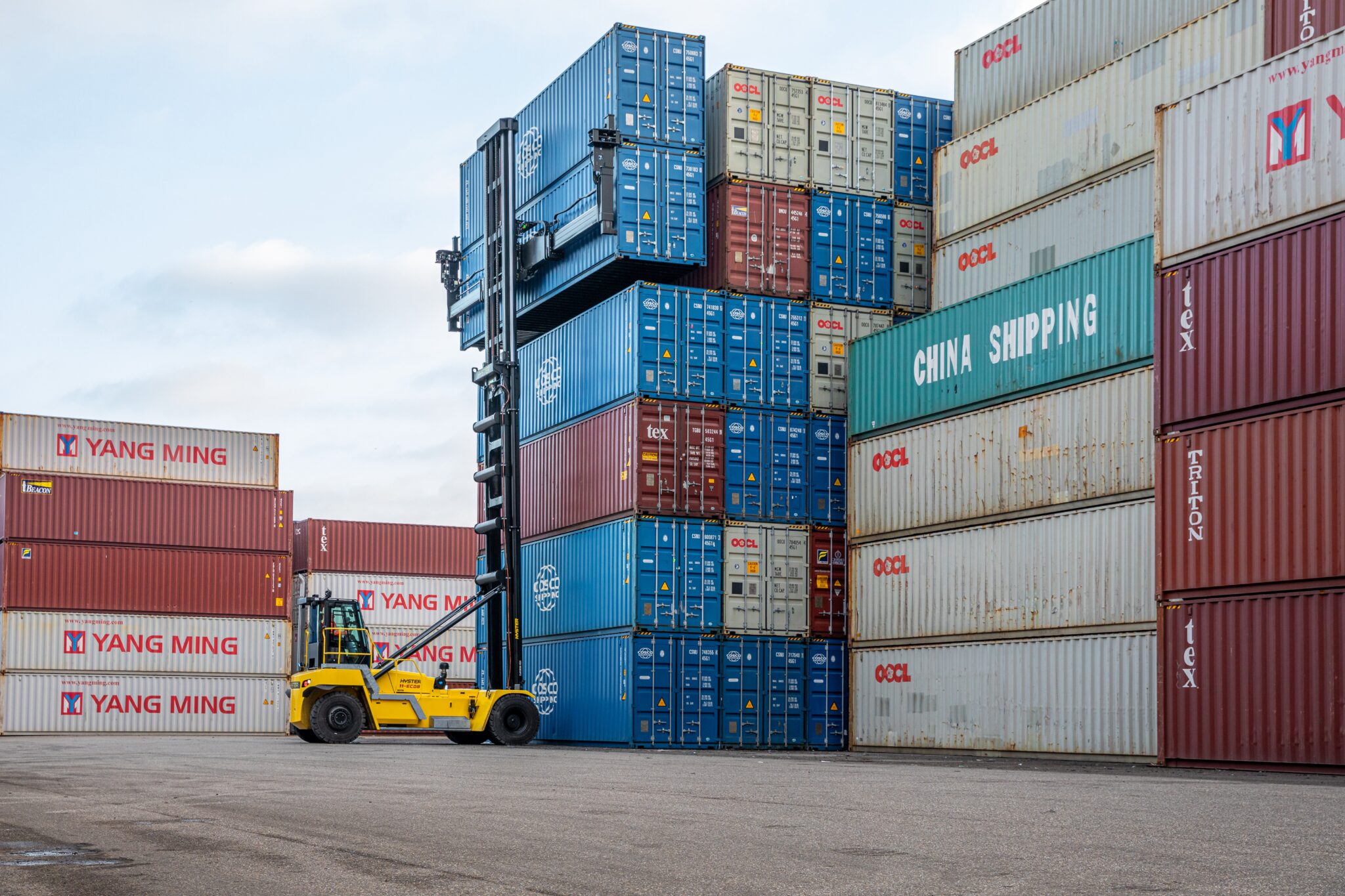Hyster announces it will provide CARU Containers B.V. with a 100% battery-powered empty container handler for the depot in Rotterdam. The electric empty container handler will be powered by 650-volt lithium-ion batteries, with electricity sourced from solar panels on site at the CARU depot.
With more than 95% of CARU Container’s Scope 1 CO2 emissions coming from its diesel forklifts and empty container handler in 2021, the introduction of the electric Hyster Empty container handler can help the company to significantly reduce its greenhouse gas emissions, while also helping to reduce its operational expenditure in terms of diesel costs.
“CARU Containers has invested heavily in its sustainability program,” says Thirza Belder, Sustainability Officer, CARU Containers “As a global market leader in container trade, we are keen to integrate sustainability into our entire value chain as we are striving to be net zero before 2030. Therefore, we started discussions with Hyster in 2021 to provide electric lift trucks and equipment for our depot, which later led to the electric empty container handler.”
CARU already possesses a 240 kilowatt-hour capacity battery that can store enough energy to charge the empty container handler for most of the year, supplemented with grid power when solar energy is less efficient during shorter winter days. This solution is expected to supply sufficient charge to allow the truck to complete five to six required hours of work during a shift before being recharged overnight. Throughout the site, CARU has installed measuring devices to calculate what percentage of the energy used comes from solar.
“This is a great application for a fully electric vehicle on a site that produces its own electricity,” says Jan Willem van den Brand, Director, Global Business Development Big Trucks, Hyster. “The fully electric empty container handler we are supplying to CARU Containers follows years of research and development into sustainable technologies for the port and container handling industry.”
This battery electric empty container handler is the latest in a series of developments where Hyster is at the forefront of electrifying higher-capacity port equipment that has traditionally relied on internal combustion engine (ICE) power. Hyster is providing an empty container handler powered by hydrogen fuel cells, another advanced electric power technology, at a terminal in Hamburg, Germany. The company is also currently testing the first-ever, real-world pilot of a hydrogen fuel cell-powered container handler at the Port of Los Angeles, and has previously announced a pilot of a fuel-cell powered ReachStacker at the Port of Valencia and a partnership with Capacity Trucks to develop electric and hydrogen powered terminal tractors. Hyster draws on extensive experience in electric truck design with the company’s line of smaller, lighter-capacity powered industrial trucks, for which Hyster offers extensive battery electric and hydrogen fuel cell power options.
“Our mission is to provide the innovative technologies our customers need to help meet their goals for emissions reduction and performance,” says van den Brand. “For some operations, lithium-ion power might be the answer, but for others, hydrogen is the right choice. The answer depends on so many factors like duty cycle, utility grid capacity and fuel availability. Our customers deserve choices that allow them to build the right solution based on their needs – not shoehorning a single technology into their operation.”
This electric empty container handler at the CARU depot is expected to operate for approximately 2,000 hours per year. Heffiq, a dealer local to CARU Containers, will act as the service partner, providing 24/7 service for maximum uptime of the truck, while Hyster will be actively involved in the integration of the truck. The empty container handler will be an electric equivalent to the Hyster H10XD-ECD8 double-container handler, which can create stacks of up to eight containers high, while handling two at a time. This design approach offers a level of familiarity for operators who have experience with other Hyster big trucks, as well as helping to control the cost of design, manufacturing, service and maintenance.
“There is a lot of interest in electric big trucks,” says Martijn Veerkamp, Commercial Director at Heffiq B.V. “But customers must consider questions of application, power infrastructure, return on investment and more. We had very constructive meetings with CARU and were able to come together to find a solution that works for them and their focus on sustainability. Heffiq is extremely proud to supply the first electric empty container handler in Rotterdam.”





